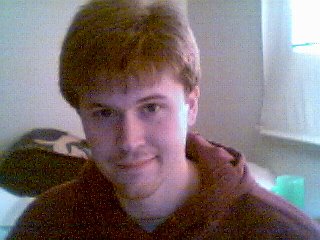A trendy topic right now: As a hitter, who was better? Babe Ruth or Barry Bonds?
The two most prolific left-handed power hitters squared off, who would be collecting the MVPs and leading their team to the playoffs if they played at the same time.
First, we'll examine the Babe's pitching stats, which will be left out for the main argument, as there is no way you can make the comparison if you include the fact that Ruth was an amazing pitcher for several years as well.
As a pitcher, Babe Ruth's statistics speak for themselves: 94-46 Record, 2.28 ERA. He also had a good WHIP(Walks + Hits per Innings Pitched, a good indicator of how many baserunners are allowed per inning). His K/Walk ratio isn't great, but with twice as many wins as losses and a low 2's ERA, there's no questioning the Babe had some serious talent as a pitcher.
You can go more in depth on his overall stats
here.
Now, we are going to leave those stats out, again, because it's not a fair comparison if Ruth's pitching contributions are included.
Barry Bonds has been an amazing hitter. This cannot really be disputed. The two stats that really are the ones that people look at are his home run total and his on-base percentage, showing how scared pitchers are of him.
Right now, at the All-Star Break 2006, he sits at 720 home runs, which makes him #1 among left-handed hitters and #2 behind Aaron overall.
Meanwhile, Babe Ruth had 714 home runs when he was finished.
In individual best seasons, Bonds beats Ruth there as well, with his record-setting 73 home runs in 2001. Ruth's best season was the then-record 60 home runs that he hit in 1927.
So from their career numbers and best seasons, Bonds holds the advantage so far.
However, in home run totals is about the only place Bonds takes the advantage.
Here are the 162 game averages for each of their careers:
B. Ruth: .342 Batting Average, .474 On-Base, .690 Slugging (1.164 OPS), 46 HR, 143 RBI, 375 Total Bases.
B. Bonds: .300 Batting Average, .442 On-Base, .611 Slugging (1.053 OPS), 42 HR, 110 RBI, 331 Total Bases.(Not including the 2006 season)
Over their careers, Ruth had more home runs per season, batted an astounding 42 points better, and even beat Barry in the category of On-Base Percentage, which was supposed to show how scared all pitchers are of Barry. Seems over their careers, the Babe was more frightening, and that was in an era when the Intentional Walk was not used like it is today.
Two other things to keep in mind when making the comparison: Games per season and each players vs. their contemporaries.
There were 154 games per season for the Babe, which means over his 22 seasons, he missed out on 176 games that he would have played in had those been 162 game seasons.
That's over 1 full season that Bonds has played in that the Babe did not. Going with the Babe's average of 46 home runs per 162. Doing the math, with 176 more games, Ruth would have hit 49 or 50 more home runs, which would put him #1 overall, ahead of Hank Aaron, at 764 home runs.
Now, I'm not advocating that Aaron should get an asterisk or anything, players can only control certain aspects of their careers, and the circumstances by which past great players played is out of their control. BUT, had Babe Ruth gotten the same number of games, and had performed at the same level he performed at otherwise, we're talking Barry still being a good 40 plus home runs behind of Ruth, rather than 6 ahead.
The other part: How did they fare compared to their contemporaries? Gehrig, Foxx and Ott were three of the biggest power hitters around the same time period that Ruth played in. Obviously Gehrig's career was sadly ended by ALS, but he finished with 493 home runs. Foxx finished with 534 home runs. Ott had 511.
These 3 players are the only 3 in the top 25 career home run hitters that played at the same time as Babe Ruth.
Now, let's look at the players who played during the same time period as Barry Bonds:
Sammy Sosa(588), Mark McGwire(583), Rafael Palmeiro(569), Mike Schmidt(548), Ken Griffey Jr.(536), Eddie Murray(504), Fred McGriff(493) and Dave Winfield(465). Keep going down the list and you hit mostly players who are active right now and are contemporaries of Barry Bonds. I even left out Reggie Jackson who played about a season and a half while Bonds was in the early stages of his career.
During Babe Ruth's time, there was no one that compared to him. Foxx's 534 homers was the closest thing. Meanwhile, there are 5 players that are on Bonds' list who have already surpassed Foxx, and one notable player, Griffey Jr., is still active and young enough that it can be expected he'll likely break 600 home runs in his career(Griffey is 35, and should still have at least 3 seasons left in his career).
Again, right below the top 25 is a host of players who are still active and will make the top 25 if they have any level of health remaining in their careers, including: Sheffield(36 y/o, 449 HR), Manny Ramirez(33 y/0, 435 HR), Thome(34 y/0, 430 HR), A-Rod (29 y/0, 429 HR), and to go well down the list and show my homer-ish tendencies, we'll throw on Albert Pujols(26 y/0, 230 HR) as a major threat to those 500 and 600 home run plateaus as well.
Therefore, while Barry stands out among his contemporaries, he isn't nearly as monolithic as Ruth was during his time period. (The purpose of this comparison is to negate any advantage of nutrition, equipment, supplements, etc.)
Clearly, given all the evidence, you MUST conclude that Ruth was a better hitter.




